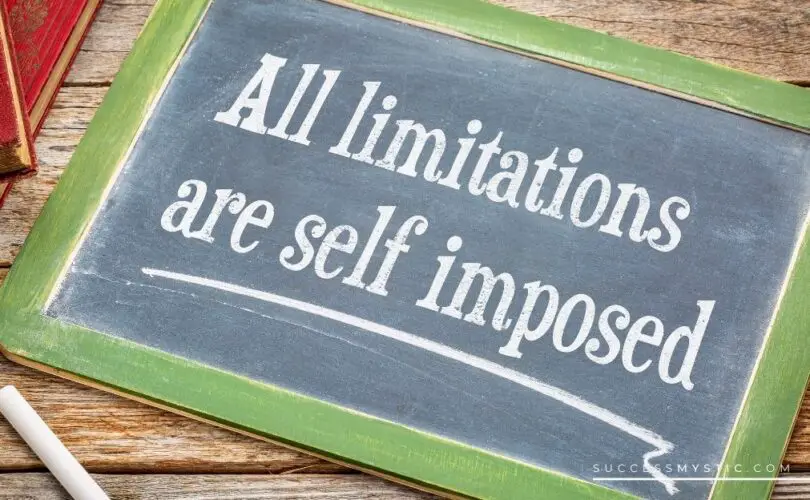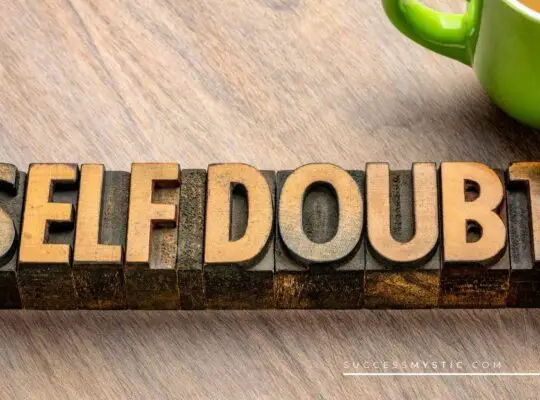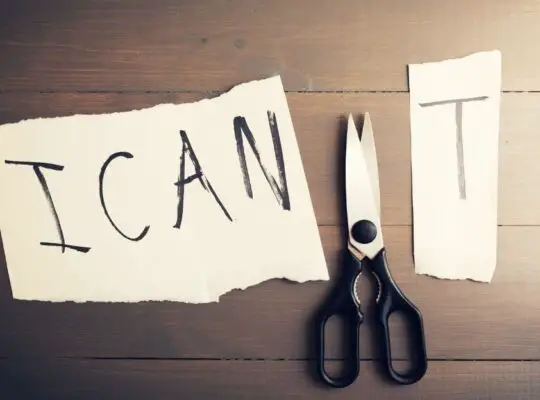Finding Satisfaction And Meaning
Learning to find meaning in your life as well as satisfaction both in what you do as well as your relationships with others require you to accept and cultivate your personal power. When you can regain and grow your personal power, you can achieve your goals and become the best version of yourself.
Below, we will help you understand what it means to have personal power as well as the many different components that are included in this self-concept. We will help you identify if you are giving up your personal power to others and how to remedy that problem.
Finally, we offer strategies, suggestions, and ideas for how to reclaim your personal power so that you can find more satisfaction and meaning in your interpersonal world.
What Is Personal Power
Thinking about “power” often conjures many preconceived notions. Power may lead you to consider political leaders or civic personnel, like police officers. Or, perhaps you think about people in control or who exercise dominance. What does it mean to you for someone to be powerful? What are the positive and negative words you most associate with power?
The concept of personal power became popular in the last decade as a way to conceive of our personal agency and efficacy to change one’s own life. And when it comes to interpersonal relationships, power can either be positive, as in personal power, or negative, as in the types of overt and covert power we try to place on other people.
Your personal power comes from within and is founded upon your own abilities, confidence, and strength. It is acquired as you grow and develop throughout your life and encompasses all your desires to have satisfaction and meaning within your life and interpersonal relationships.
Personal power comes from a desire to better and master yourself, not to change or have power over other people. Personal power is grounded in your own qualities, vision, and needs, but it is manifesting in the way you treat, respond to, and connect with other people.
The Components Of Personal Power
Just as your self-concept is made up of various aspects, so is your personal power. Knowing where your strengths and areas for improvement can help you cultivate your personal power more fully, enabling you to achieve all your personal goals. Within each section, we have included a few suggestions to improve this aspect of your personal power, should you find this as a need in your life.
1. Interpersonal Skills
Your ability to get along with others, connecting on a deeper level, is your interpersonal power. Not only is this dimension of personal power about your likeability, but it is also about how you approach relationships, whether people can trust you, and how good you are at communicating with others.
You can improve your interpersonal power by working on your communication skills, which means not only saying what you mean and need but also learning to listen better and develop your nonverbal communication skills. Being more conscientious about your relationships will also help improve your interpersonal power, as will enhancing your conflict-resolution and negotiation skills.
2. Expertise
Your skills, experience, and abilities in all the various aspects of your life make up your expert power. You have strengths in many areas that you use in multiple roles you play, from your personal to your professional domains. These strengths can be used to help you achieve goals, help others, and be a leader or mentor to someone in your life.
You can enhance your expert power by learning new skills, acquiring new knowledge, or honing your ability to model these for other people. Keeping up with the latest advancements in your field, learning a new skill or hobby, or sharing your wisdom with others are all effective ways to improve your competence and help you feel more confident about your expert power.
3. Rewards
Rewarding yourself and others helps to reinforce positive things. Rewards can be tangible, like money or perks, but they can also be intangible, such as praise, attention, and other forms of social reinforcements. Not only should you reward yourself for your positive behaviors but rewarding others also helps them know you appreciate them.
You can improve your reward power by giving compliments, recognizing others’ contributions, and honoring your own hard work and effort.
4. Referent Power
When you are admired and respected by other people, you have referent power. When it comes to finding satisfaction and meaning in your interpersonal world, referent power is essential. This trait is what allows you to have healthy, powerful relationships. Without trust and respect, others will not want to remain connected to you over time.
To build your referent power, work on how you can be a role model to others as well as being a supportive friend. Focus on how you can support the needs and goals of other people in your life, including doing kind deeds for others, being responsive to others in need, and being the best listener, you can.
5. Personal Fortitude
Your ability to be resilient in the face of adversity, to exercise grit and determination to overcome hard times, makes you more powerful. When you show courage in difficult circumstances, you are more likely to garner help from others, including encouragement and advice when you need it. When you show confidence in your abilities to overcome trials and tribulations, others will believe that you can succeed, as well.
To become more resilient, create a plan for developing in this area. Determine what obstacles are holding you back from this dream and devise ways to overcome these. Read more about personal development to enhance your knowledge on this topic, too. Practice solving problems in multiple ways when possible.
6. Clear Morals
Your moral stature and ability to live your life by your own ideas is vital for developing your personal power. It is only when you live your life by the values you espouse that you can be truly yourself. Others are more likely or believe and trust you, as well, when you live according to your guiding principles in life.
If you want to work on clarifying and living by your morals, try volunteering for a cause that is important to you. You can also ensure that your goals are aligned with your values and live your life accordingly. You can also be sure you are treating others in your life as you would have them treat you.
7. A Growth Mindset
Having a growth mindset, one that values the many learning experiences and lessons life has to offer, is crucial to building your personal power. A growth mindset allows you to embrace all experiences and people as learning opportunities. It helps you keep an open mind about your interactions with others as well as practice being non-judgmental about things that are new to you.
You can develop a growth mindset by asking more questions, focusing on what you can learn from other people, and actively learning something new each day.
Are You Limiting Your Power?
Because personal power comes from inside you, based on your healthy sense of self, it is influenced by many aspects of your personality. Your self-confidence, esteem, and efficacy all influence how powerful you feel about your ability to have the life you want.
Whether you have a strong sense of personal power or yours is in need of attention, you may be wondering from where your sense of self comes. As with all parts of your personality and psyche, it has developed over time and has its roots in your earliest life experiences.
The Origins of Your Personal Power
Your parents, siblings, and early caregivers laid the foundation for how you feel about yourself, your actions, and your attitudes, even those you have today. When you were young, those closest to you reflected to you who they thought you were. They helped shaped your ideas about what you believed you were capable of doing, your interests, and how you talk to yourself.
Your personal power is how you act toward yourself, making it an expression of your sense of self. Your actions reveal a lot about what you think about yourself. Whether you were supported, hindered, or ignored in your efforts to be yourself informs how you think and feel about your own ability to change your life and make the changes you want in order to be happy.
Your ability today to take initiative and move forward with big and little decisions has its foundation in your family’s history of encouraging or discouraging the development of your personal power.
And while these influences are certainly strong, they do not have to be insurmountable. You can change your future, even if your past has previously limited the growth of your personal power.
How To Tell If You Are Limiting Your Personal Power
Whether you realize it or not, there are many ways that you could be sabotaging your own personal power every day. The degrees to which you allow either your family’s influence, the opinions of others, or life’s circumstances to control how you feel about yourself influences how you behave, even to this day.
Below are some of the warning signs that you may be limiting your own personal power. If you recognize any of these within your own behavior, it is time to address this and start reclaiming your personal power in order to live the life of your dreams and connect with those around you.
Here are some ways you may be limiting your personal power.
- Doubting your own abilities. “I’m not talented enough to start my own business.’
- Feeling that you are always having to prove yourself. “If I start late and work, I’ll be extra prepared for tomorrow’s meeting.”
- Preferring to follow rather than lead. “I’m happier just doing what I’m told to do.”
- Refusing to take risks. “If I try and it doesn’t work, I have a lot to lose. I’ll just keep it how it is.”
- Caring too much about what others think. “He didn’t say anything about my presentation. I wonder if it was ok?”
- Apologizing unnecessarily.
- Needing to be liked by everyone.
- Having an ardent desire to control everything. “If she had done it how I asked, everything you be fine now.”
- Not recognizing that you are unique and special. “I really wish my hair looked like hers.”
- Settling limits on what you think you can do. “I can manage this project at church but there’s no way I could ever manage something on the corporate scale.”
- Feeling discomfort about promoting yourself or your skills.
- Having problems in your relationships relayed to power or dominance.
- Engaging in activities because you want to make others happy.
- Never being satisfied with your own achievements. “There are so many people better than me, so I’m not sure why they picked me for this job.”
- Depending on outside rewards to feel secure in your success.
- Failing to see how important your relationship with yourself is. “I must take care of them, so I don’t have time to do this for myself.”
- Living with any type of addiction. “Going shopping makes me so happy. I don’t want to give this up because I deserve this one vice.”
- Having the same problems repeatedly in different relationships or chronically in any relationship.
If any of these sound familiar to you, it may be time to pay attention to and start working on reclaiming your personal power. Living in a disempowered state leads to further unhappiness, which often forces you to rely on even more unhealthy or unproductive behaviors. So, if you are ready, it is time to regain that personal power.
How To Regain Your Personal Power
Reclaiming your personal power is about learning to feel more confident in your abilities, to make the best choices you can for yourself, and to continue learning and growing to become the best version of yourself.
When it comes to your interpersonal relationships, having personal power makes you the best possible person you can be, which means you are a better partner, friend, parent, child, or colleague you can possibly be, too.
The following are activities, habits, or strategies you can use to help grow your connection with your personal power, enhance your confidence in yourself, and allow you to achieve your greatest happiness in life.
Stop Complaining
In order to increase your personal power, you must switch from a mindset of blaming and complaining to one of solving problems and searching for solutions. When you spend all your time complaining or talking about what is wrong in your life, you leave to mental energy to search for ways to solve it. When you focus only on grumbling, you are essentially saying that you have no power to change your situation, which means you are relinquishing your power through your attitude and actions. Stop complaining and start solving the problem.
Forgive
When you spend your mental and emotional energy holding a grudge against someone else, the only one it punishes is yourself. Wasting valuable time thinking about how you were wronged or what you would like to do to the person who hurt you does nothing to solve the problem or help you move forward.
Learning to forgive others for their mistakes allows you to reclaim your power and move forward in a healthier way. You do not have to accept that what happened was right or ok, just that you are choosing to let it go and enjoy your life moving forward.
Be Clear About Your Values
When you are not sure what it is you value and believe, you become a passenger in life rather than the one driving. Lacking clarity on your values means you are prone to allowing others to guide your decisions or adopting behaviors that are inconsistent with your needs or beliefs. If you want to be true to yourself, you need to acknowledge your values, which can help you regain your power and focus on what is important to you.
Your personal power erodes when it is not grounded in anything meaningful. Take some time to find your most important values, evaluate how much of your life is dedicated to these, and adjust accordingly.
Accept Responsibility
Allowing others to dictate how you feel relinquishes your power. The only person who can make you feel upset, sad, happy, or anything else is you. Accept responsibility for your own emotions by recognizing that no one can make you feel anything you do not want to feel. Managing your emotions is an important part of gaining your personal power.
Find Ways to Harness Your Passions and Talents
One of the ways you can feel more personally powerful is to find ways to combine your passions and talents to carry out important goals in your life. This combination of drive, capability, and function increases your confidence and competence, helps you accomplish something productive, and gives you a sense of purpose. This means relinquishing things that do not provide you with all three, like a job that makes you miserable, hobbies that do not bring you joy, or activities that serve to function.
Start by naming your greatest strengths, then identify those activities and work that bring you the greatest joy or sense of passion. How can you use these to make a valuable contribution to your life or to others? These are areas where you should spend more of your time and energy.
Create Healthy Boundaries
When you refuse to speak your opinion or stand up for yourself, you give away your power to other power. Giving in to guilt also robs of your sense of power. Instead of blaming others for your choices, take charge of yourself and set up healthier boundaries. Take control and gain back power by allowing others to know that you do not agree, can’t do what they are asking, or need your viewpoint honored and respected.
Find Your Buttons and Stop Letting Others Push Them
We all have things that drive us crazy and send us into an emotional response. Whatever your buttons, you know that when people push them, you react automatically and probably pretty emotionally. When you do this, though, you give away your personal power. Refusing to engage with others who push your buttons is one way to change their behavior while also supporting your own sense of power and control.
Think about those things that really get you going. What are your hottest trigger buttons? Now, name what you will do the next time someone pushes one of these buttons. How will you respond that allows you to remain in control while also setting up a healthier boundary with the other person?
Let Go of Unproductive Thoughts
We are all guilty of falling down the rabbit hole of unproductive thinking. This can include thoughts of “what if” and “if only” as well as the shoulda, coulda, woulda thoughts that we all have from time to time The thing about these unproductive thoughts, though, is they drain you of the mental and emotional energy you need in order to be productive and find solutions to what’s really wrong in your life. Stop these daydreams and regret-filled thoughts in their tracks and instead focus on a plan for how to improve whatever is wrong.
Stop Playing The Victim
The saying “Bad things happen to good people” is, unfortunately, absolutely true. And no matter how smart, talented, or accomplished you are, things can and will go wrong from time to time. While you may be the victim of life’s misfortune or others’ negative actions now and then, it is up to you to determine whether you will allow these events or circumstances to victimize you. Becoming victimized is a choice and one with which you have to live.
Ruminating on the past, getting lost in your own pain, or focusing on the regrets you may have are all ways you decide to be victimized by the events in your life. Instead of choosing this path, though, you can instead opt to use the lessons you learned from this experience to grow and become a healthier, stronger person.
When you allow yourself to get trapped in the mindset of victimization, you give your power away to others or life in general. How about, instead, you harness that power to turn your tragedy or disappointment into something better in your life?
Don’t Worry About Others’ Opinions
Your self-worth should not be dependent on how others view you or treat you. You do not need to be liked by or approved of by anyone else in order to be genuinely happy in this world. When you focus too much on what others believe about you or think you should be doing, you are giving them power over your life that they do not deserve.
Take back your power by realizing that the only person who has control over your life is you. The only vote that counts or opinion that matters if your own.
Believe in Your Goals
When you have determined that your personal power is lacking, for whatever reason, and you embark on a journey to take back your power, it is important that you believe that what you are doing is necessary.
The only person who must live with the consequences of your choices is you. The only person that can make you happy is you. So, the only person who should have power over your life is you. Believing that this work and these personal power goals are important is crucial if you want to find the satisfaction and meaning you have been craving in your life.
Stand Out
Blending in with those around you is one way you can be giving up your personal power to others. Fitting in with the crowd only disguises who you really are. It does not honor your unique qualities or gifts; it does not make you special or important. Stand out and let go of the fear and self-doubt that fitting in brings. Trust yourself and know you are strong enough to be different and truly yourself.
Be Authentically Yourself
Living your life according to your values and honoring your passion takes courage. But doing so allows you to bask in your personal power and to live the best life you can. While being authentic requires you to become a little vulnerable, it also allows you to be you in every way possible.
Would you rather be rejected for being yourself or liked for being something you are not? If you chose the former, then you have personal power. You are unique and different, and you should honor that by embracing what that brings to your life.
Final Thoughts
Your personal power is what enables you to rely on your talents and abilities, to trust in your instincts and decisions, and to take advantage of the many opportunities life has to offer. When you give up your power to others, you allow them to control your life or choices, which leaves you living with unhappiness.
Your personal power forms at an early age but is shaped over the many years of your life. It is never too late to decide to embrace and cultivate your personal power, no matter your past choices.
Personal power can be enhanced by changing your mindset, clarifying your goals and values, and learning to accept yourself and your responsibility for your own life and happiness. Embracing a growth mindset as well as learning to identify areas where you need to focus will help you develop your personal power, which can help you have the life you have always wanted.







